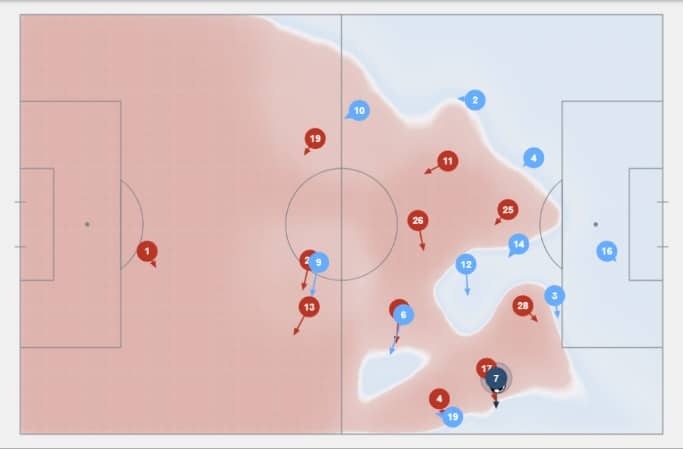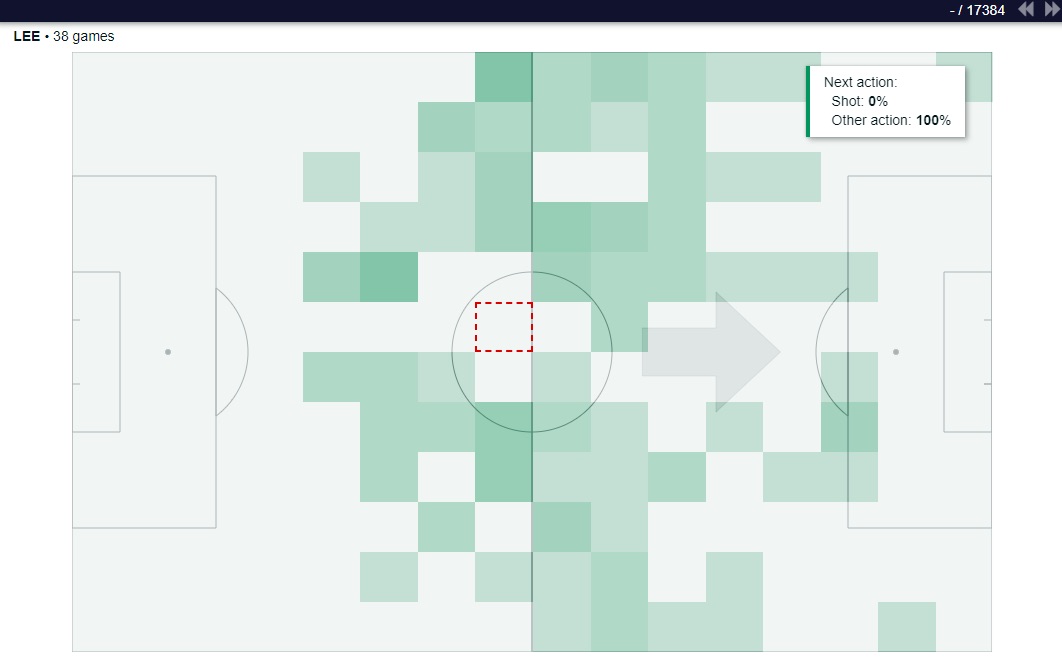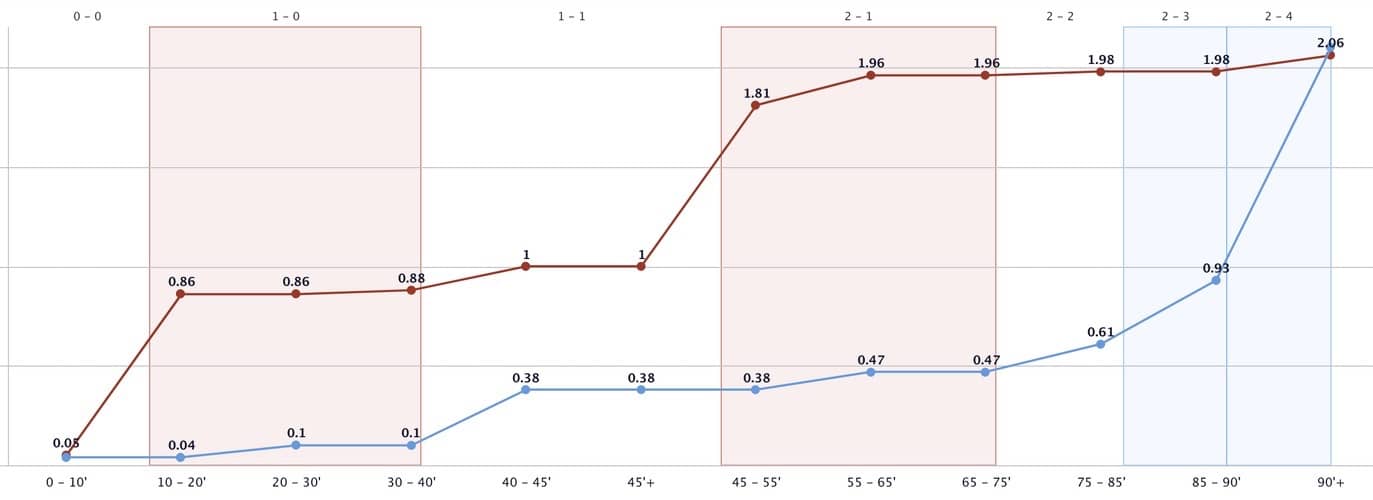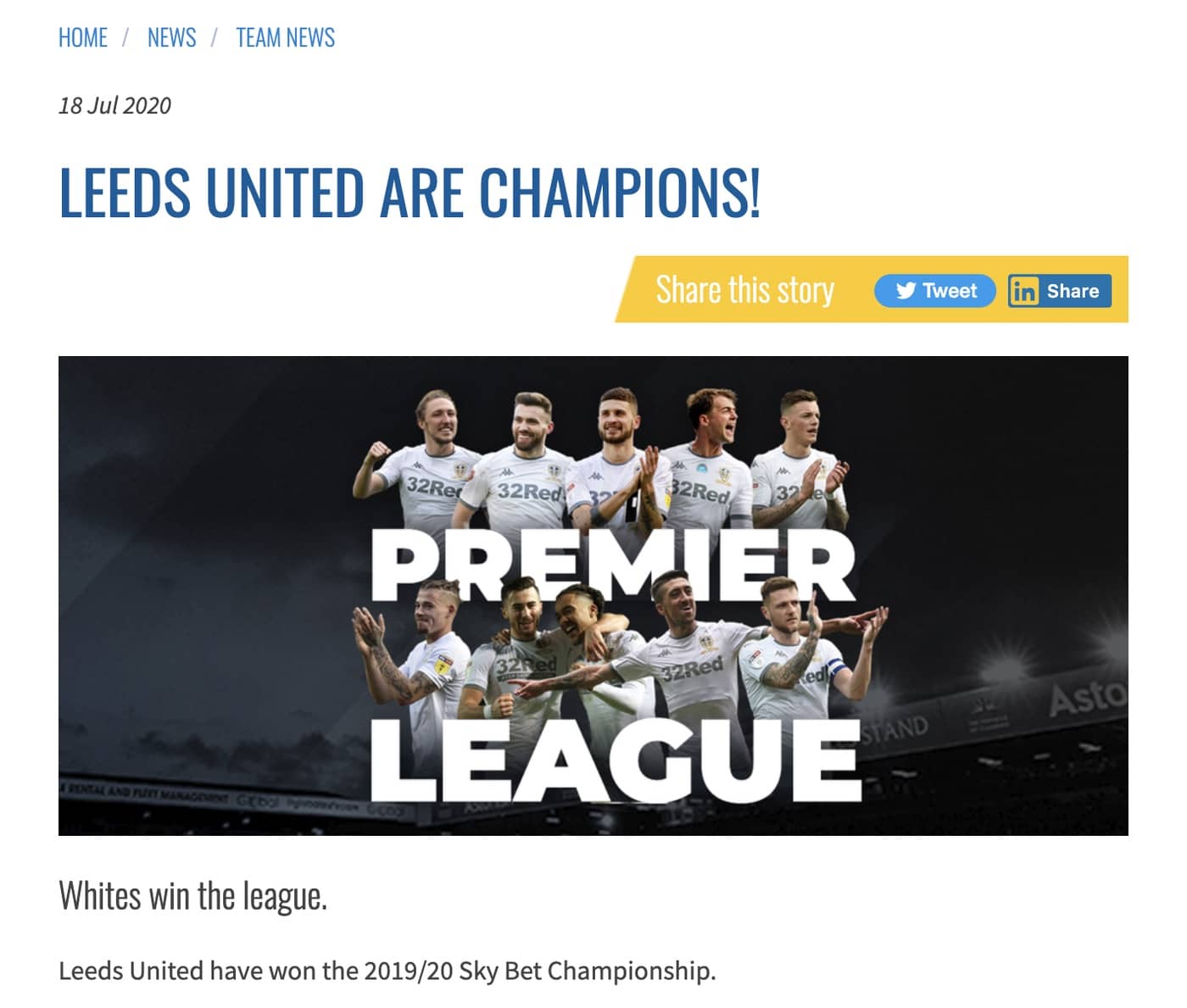
From promotion from the Championship, to bursting onto the Premier League, to the more sobering realities of a second season in the top flight, Leeds United have been through a lot since partnering with Footovision in 2019, but our relationship is only getting started.
Long gone are the days of Leeds United's dominance in the late 60s/early 70s under Don Revie, who took them from the brink of relegation to the Third Division to First Division champions in four years. The last First Division champions in 1992, Leeds United have spent a large part of the Premier League era on the outside looking in. However, perhaps looking to make up for lost time, Leeds are on a similar trajectory as 40 years ago: playing in their second season in the topflight after languishing in England's third tier as recently as 2010, the club and its supporters have reason to be satisfied.
But if there is one word that is the antithesis of the Radrizzani's tenure and Leeds' meteoric rise since summer 2018, it's 'satisfied'. Introducing novel concepts like overlapping centre-backs, fluid formations that can switch from a 4-1-4-1 to a 3-3-3-1 in seconds and topping physical performance metrics game after game, Leeds have quickly developed an attractive and instantly recognisable style on the pitch — and a reputation for wanting more. So how do this exciting club continue to stave off complacency in their bid to establish themselves in the most competitive league in the world? What are the tools used to convey the complex tactics that the coaching staff are looking to impress on a 30-strong squad full of different ages and nationalities?
With video analysis, statistical software and other technology becoming increasingly commonplace in football, Leeds must stay one step ahead of the game. One of the many ways they achieve this is through Footovision's data collection services and online dashboard. We spoke to Leeds United's performance analysis team to find out what makes Leeds tick.
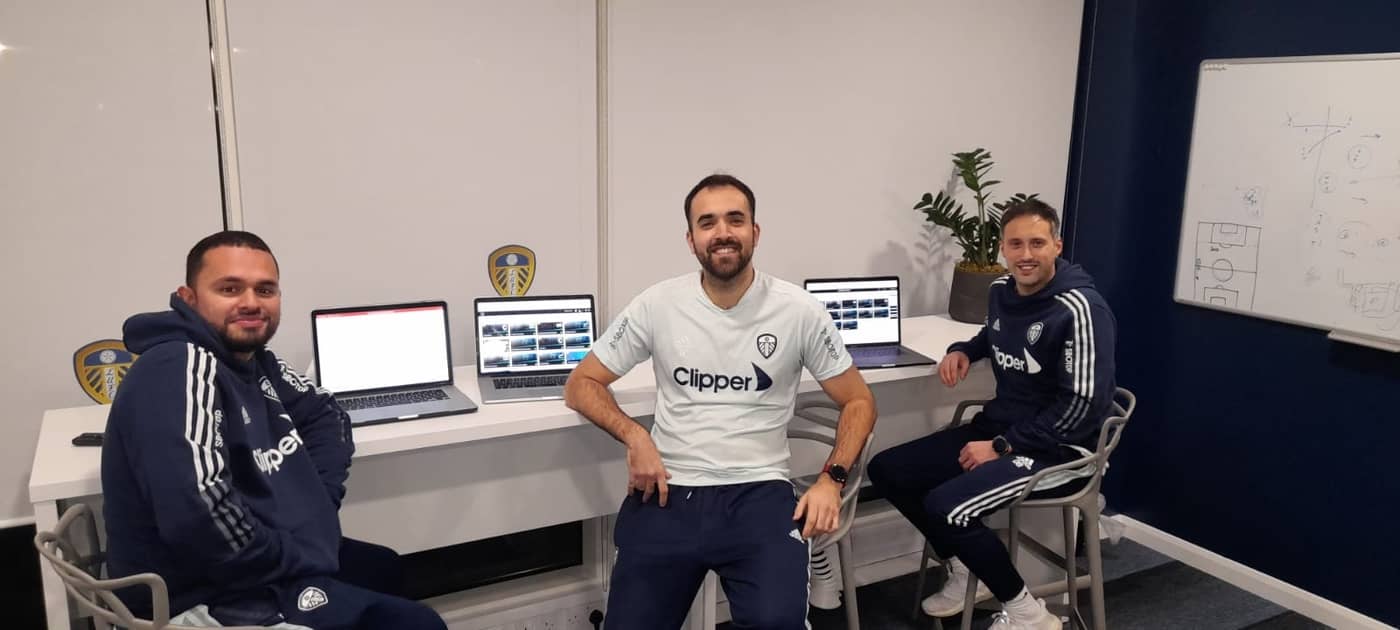
I first ask the trio to guide me through their daily routine. Diego and Ander are responsible for analysing their own team, whilst Andrés takes charge of analysing the next opponent. "The analysis process begins immediately after a match. About two hours after it ends, we get access to the different cameras the Premier League uses to film the matches. With that footage, we make a montage of the match in which, depending on the aspect to be highlighted, we use one angle or another to create a single video that all the staff can use."
I ask them to clarify what they look for specifically in the videos. For Diego and Ander, "we have to analyze how the team behaved in every moment of the game. In general terms, playing out from the back, progressing the ball upfield and the completion of the actions are identified." They also analyze how Leeds reacts to regain possession when the ball is lost, and in how the team exerts pressure defensively.
Andrés states that for him, "the main aspect is the positioning of the players on the field. Since we adapt to each opponent, it is very important that we know how the other team occupies the field and the characteristics of their players and how they adapt to ours. For this reason, Footovision is a great tool since it allows us to follow the positioning of the opponents during fragments of matches or after substitutions, which helps us to identify changes in positioning and formations. Another important aspect that we focus on is how the opponents play out and how they press."
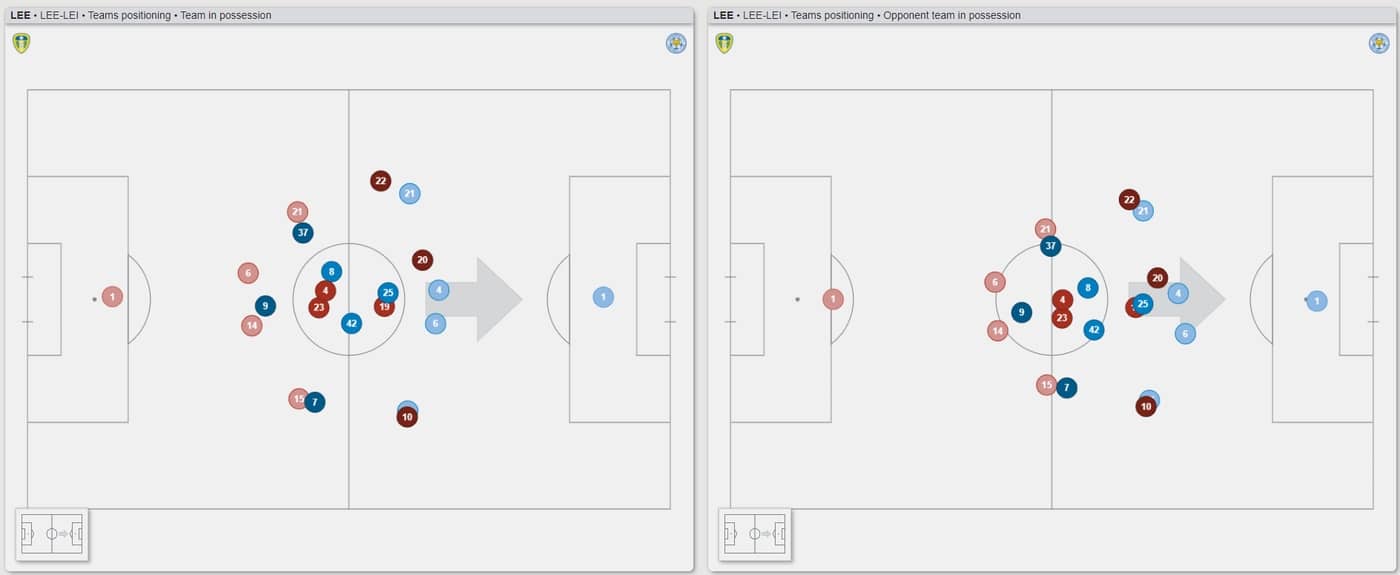
The Footovision platform clearly influences many other facets of Leeds: "This technology is paramount for us as it allows the coach and his staff to tailor training exercises to those aspects." The platform is also available to the medical staff and all other departments at the club: "In our opinion, the platform can be very valuable not only for us because, while the data from the GPS vests provides a lot of metrics, Footovision supports the data with actions on video, so that if an injury occurs, you can see it on video with the context of the actions immediately before and after the event, where aspects such as his running speed when he was injured would appear."
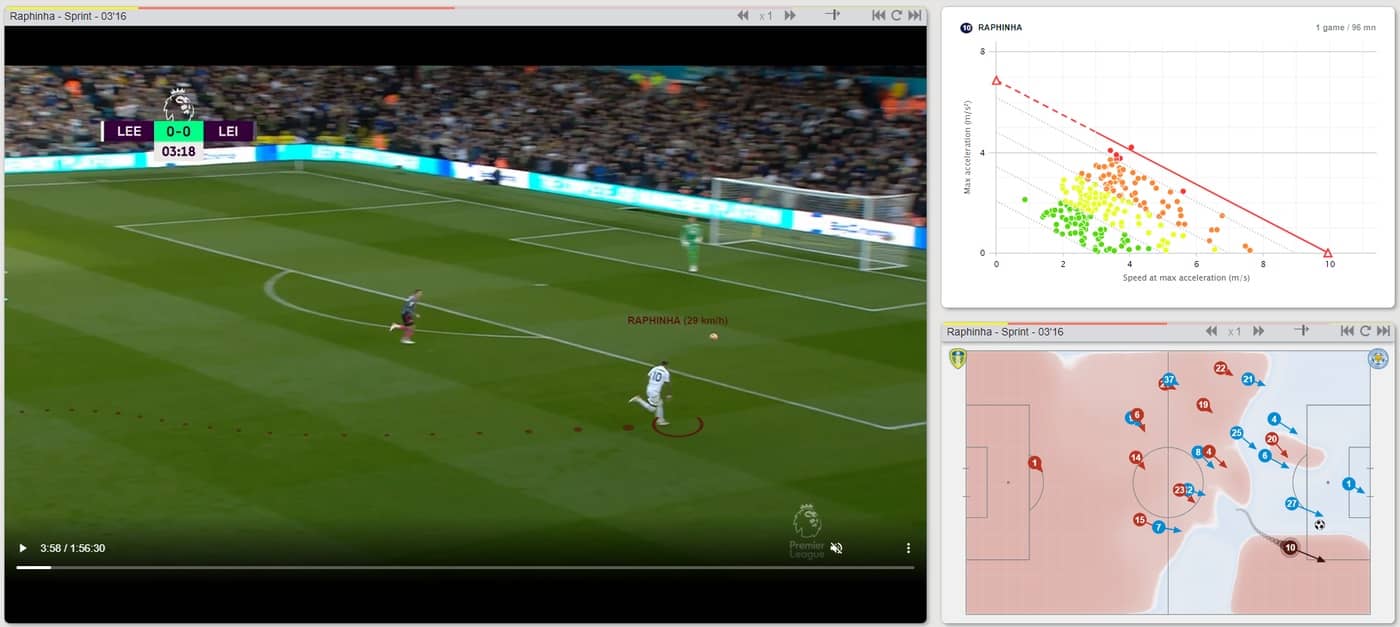
Footovision runs the match footage through its AI algorithms and upload the complete match data on our platform often as quickly as 1 hour after the final whistle. Using this data combined with the Premier League's footage, the trio can make use of "the interpretation of the data on the Footovision platform to better understand the game mainly from a tactical point of view. Once this is done, we watch the game again with a greater awareness and understanding supported by the data provided by Footovision."
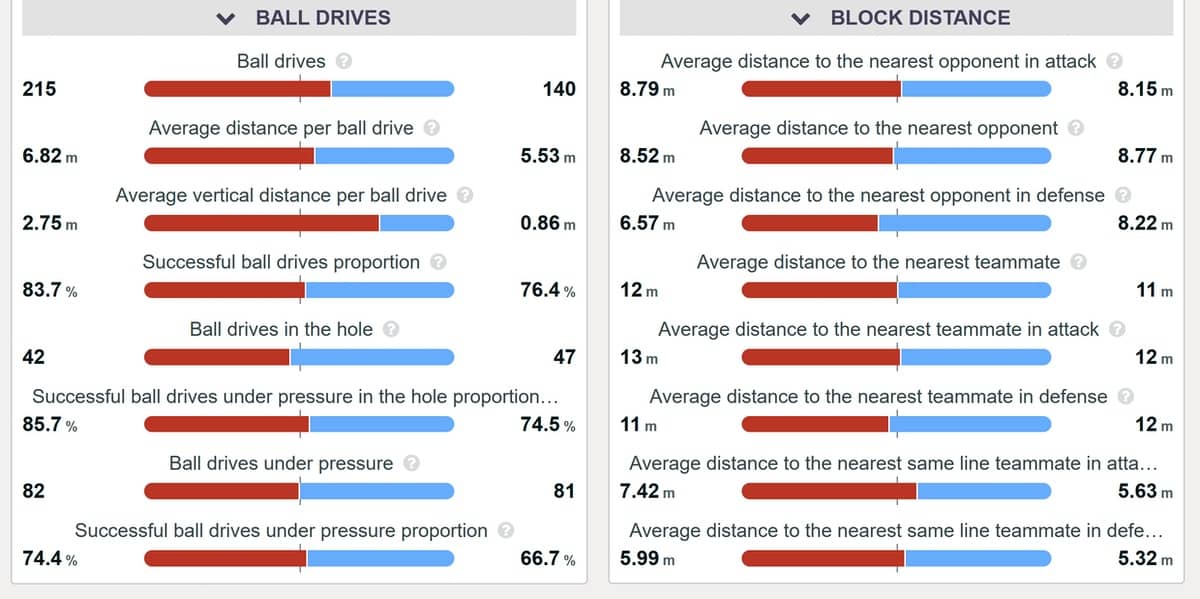
"The large amount of information provided by the Footovision platform allows us to describe all relevant sections or phases of the game in terms of data, such as knowing the speed of ball circulation, the average positioning of the team with and without the ball, the number of ball recoveries and the how far up the field they occur, etc." So far, it is already clear that the platform and the analysts' workflow is geared towards cementing the high-pressing, direct style that Leeds has become synonymous with.
The next step is to present this raw data laden with information to the players and coaching staff: "We prepare a video for each player that summarizes their performance in the match. This video, together with the individual data of each player, paints an accurate picture of their individual performance."
"Throughout the week, different videos are also prepared to support the team talks. The objective is to give the players a precise idea of the collective performance in the previous game, as well as to work on concepts for the next game."
As if this process doesn't sound exhaustive enough already, Andrés, Ander and Diego are all in the dugout on matchday: "We make live contributions to the coaching staff so that they can use the information that we provide them to manage the match." So for any Leeds fans reading this, next time you're puzzled why the manager is bringing on a defender when Leeds need a goal, chances are it's a decision based on detailed physical and performance data by the coach's trusted analysis team.

For three experienced analysts who have worked with a multitude of other technology in the past, what has made Leeds stick with Footovision since signing in 2019? "The most prominent reason is that with Footovision we can generate custom dashboards, choosing the amount and type of data that best suits us both to describe different aspects of our performance in matches and to help describe certain behaviors of our opponents.
Another benefit is how rapidly the data is made available on the platform, and how the data is added to the dashboards without the need for us to program any commands. The dashboard is fully customizable so it also allows you to choose how the data will be ordered and appear if you want to print it in a report." These are just some of the details that separated Leeds from the other teams still fighting to escape the Championship.
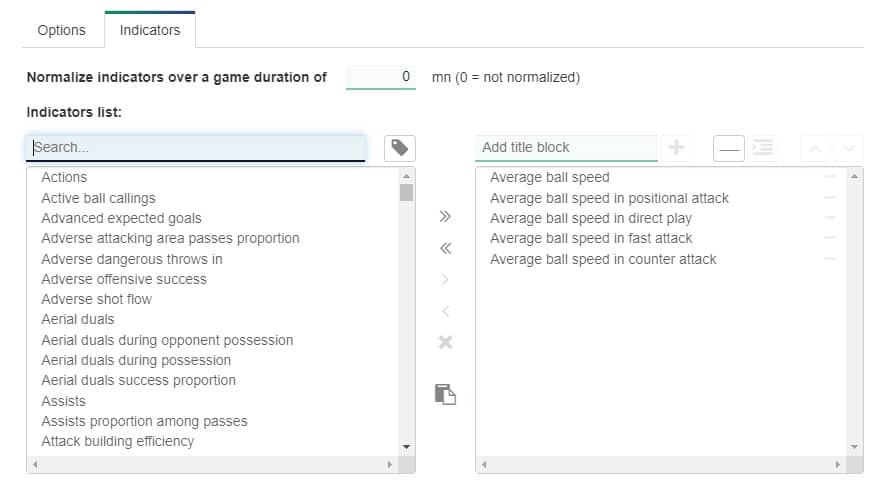
Technical aspects aside, another major strength of Footovision is our intimate team, which allows us to cater to our clientele's needs. "Communication with company managers, especially Fernando Sousa (our Senior Business Developer), is perhaps one of the biggest differentiators, since they listen to our needs and requests and implement them in the program, sometimes in a matter of days."
Diego tells me: "I like the way you can present the data on the platform: you can directly extract a photo, video or graph of the data and order everything in a presentation, compared to other platforms where the data is badly visualised so the players cannot understand it". For Leeds, understanding the coach's gameplan and the reports that Diego, Andrés and Ander creates is paramount; if even one player does not, then the shape of the entire team can disintegrate.
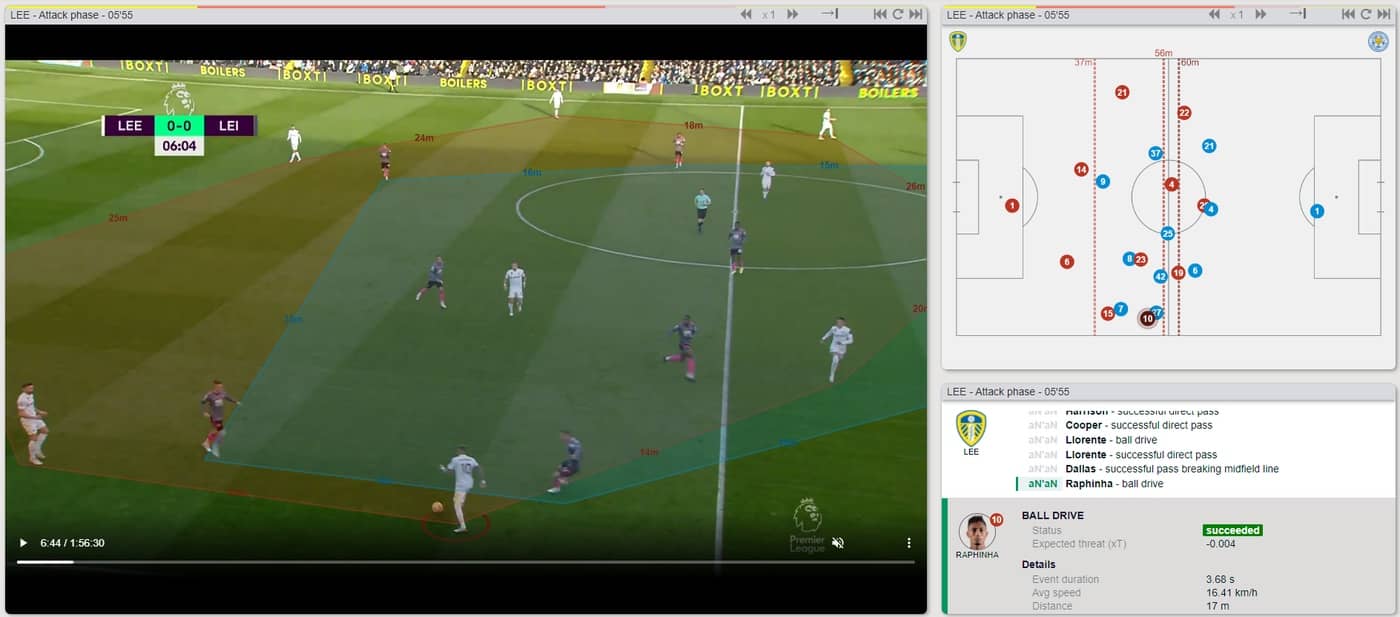
As the interview draws to a close, I ask the three men about the future of the department at Leeds. Are there plans to expand, obtain new technology? In the most competitive league in the world, how will the Peacocks ensure they don't fall behind the curve? "As everyone knows, football is always developing, but what we can say is that us three analysts are very happy working together here. We have different roles, but we work synergistically, and we bond well. It's impossible to separate the analysis of our team and the opponent's team, because the concepts we explore with our own team are influenced by the needs or challenges presented by the next opponent, so the feedback between both parties is constant."
Evidently, the relationship between Andrés, Ander and Diego is constructive and they are always looking for ways to improve individually and as a unit: "we have gradually been incorporating new features in our work tools. For instance, the club has acquired a drone to get better shots of training. The analysis department has also acquired licenses for new programs to work with Footovision, Angles, and other programs we use. Premier League clubs are increasingly incorporating this technology, so in that sense we are fortunate to be in such a progressive environment."
The last sentence certainly rings true. In the cutthroat conditions of the Premier League, competition drives each club to invest in more technology which could give them the slightest advantage over the others. Partnering with Footovision certainly fits that criterion. For a team with such an identifiable gameplan in the most data-driven league in the world, analysts like Andrés Clavijo, Ander Carbajo and Diego Bermúdez must be on top of their game to figure out the ins and outs of their own team while also deciphering world-class outfits week in week out, and there is no software better than Footovision's to facilitate this goal.
